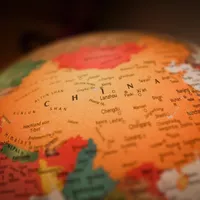188. 東西 的 由來 - The origin of things
||origin||origin||
188. The origin of things- The origin of things
188. Pochodzenie rzeczy. Pochodzenie rzeczy
我 上 小學 的 時候 , 常常 想 一個 問題 :“ 東西 ” 真是 個 有意思 的 詞 。
||||||||||really||interesting||word
When I was in elementary school, I often thought about a question: 'Things' is really an interesting word.
為 什麼 我們 說 “ 買 東西 ”, 不說 “ 買 南北 ”?
||||||not say||north and south
Why do we say 'buy things' instead of 'buy north and south'?
或者 , 在 中文 裡 我們 為 什麼 要 用 兩個 方位詞 來 表示 “ 事物 ” 的 意思 呢 ?
||||||||||adverbs of direction||express|thing|||
Or, why do we need to use two directional words in Chinese to express the meaning of 'things'?
教 中文 以後 , 我 發現 很多 學生 跟 我 一樣 , 也 對 “ 東西 ” 這個 詞 很 感興趣 。
teach|||||||like|||||||word||interested
After teaching Chinese, I found that many students, like me, are also very interested in the word 'thing.'
那 我們 今天 就 來 講講 “ 東西 ” 的 由來 吧 。
|||||talk about|||origin|
So today, let's talk about the origin of 'thing.'
關於 “ 東西 ” 的 由來 , 有 好 多種 說法 。
about|||origin|||many kinds of|sayings
There are many different explanations regarding the origin of 'thing.'
第一種 是 : 在 唐朝 的 首都 長安 , 有 兩個 大 的 市場 , 一個 在 城市 的 東邊 , 叫 “ 東 市 ”; 一個 在 城市 的 西邊 , 叫 “ 西市 ”。
|||Tang Dynasty||capital|Chang'an|||||market|||city||east side|is called|East|market|||||||West Market
The first theory is: In the Tang Dynasty's capital, Chang'an, there were two large markets, one on the east side of the city called 'East Market'; and one on the west side of the city called 'West Market.'
所以 , 人們 慢慢 就 用 “ 東西 ” 來 指 各種 事物 了 。
|||||||refer to|various|things|
Thus, people gradually began to use 'East-West' to refer to various things.
第二種 說法 跟 “ 五行 ” 有關 。
|theory||Five Elements|related to
The second theory is related to the 'Five Elements.'
五行 , 就是 五種 自然現象 : 金 、 木 、 水 、 火 、 土 。
Five Elements|||natural phenomena|metal|Wood|||Earth
The Five Elements, which are the five types of natural phenomena: Metal, Wood, Water, Fire, and Earth.
中國 人 認為 , 世界 上 所有 的 東西 , 都 可以 分成 這 五個 類別 , 方向 也 不 例外 。
||think||||||||divide into||five|categories|direction|||exception
The Chinese believe that everything in the world can be categorized into these five categories, and directions are no exception.
東方 是 “ 木 ”, 南方 是 “ 火 ”, 西方 是 “ 金 ”, 北方 是 “ 水 ”, 土 在 中央 。
the East||Wood|the south|||||metal|North|||Earth||the center
The East is 'Wood', the South is 'Fire', the West is 'Metal', the North is 'Water', and Earth is in the center.
在 古代 , 只有 “ 木 ” 和 “ 金 ” 是 可以 買賣 的 , 所以 我們 說 買 “ 東西 ”。
|ancient times||wood||gold|||trade||||||
In ancient times, only 'wood' and 'metal' could be traded, so we say to buy 'things'.
第三種 說法 比較 直接 , 看看 “ 東西 ” 兩個 字 的 甲骨文 就 知道 了 。
|saying|is比较(1)direct|||||||oracle bone script|||
The third explanation is more direct; just look at the oracle bone script of the two characters 'things' and you'll understand.
( 東 :https://www.slow-chinese.com/podcast/dong-xi-de-you-lai/ 西 :https://www.slow-chinese.com/podcast/dong-xi-de-you-lai/ )。
|||||||||of|||west|||||||||||
(East: https://www.slow-chinese.com/podcast/dong-xi-de-you-lai/ West: https://www.slow-chinese.com/podcast/dong-xi-de-you-lai/.)

